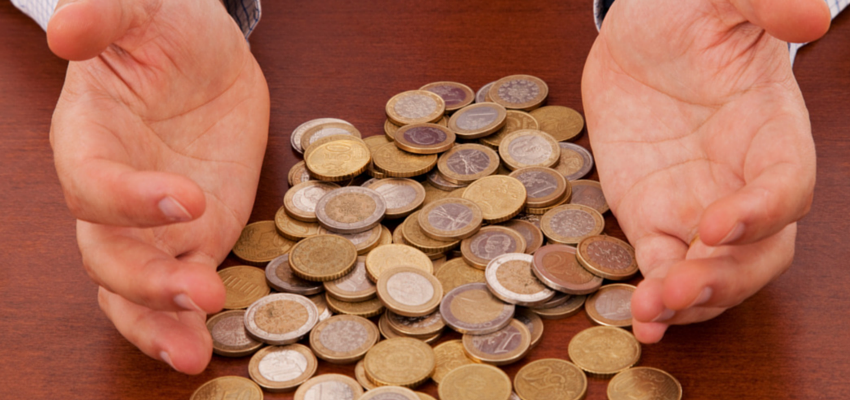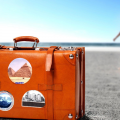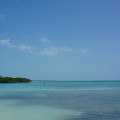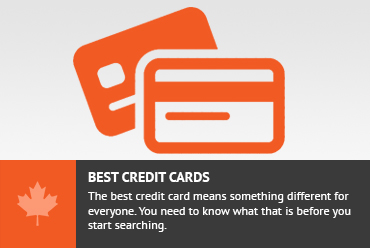Let me first start by saying that in order to save enough cash for a trip (no matter the duration), you need to first decide that travel is something you really want to do. Saving money is possible, IF you truly have the desire to do so.
Once you’ve made the conscious choice to set aside some cash for your adventures, you’ll need to set the savings in motion.
Here are some tips to help you save some money for travelling.
Set up automatic withdrawal with your bank
Most companies in Canada pay their employees via direct deposit. On the same day that your salary cheque is deposited, have a set amount automatically transferred into a separate savings account. By doing this, you won’t even realize that you had any money taken off the top of your cheque, as you never even see it. If you try to manually put away money into a separate account, it can be more difficult to have the will power to do so. By having it automatically taken off of your cheque, it’s as if you never even had that cash in the first place. Before you know it, that savings account will grow and you’ll be closer to reaching your goal.
Take on a second job or work overtime
It may not sound all that desirable to work extra hours or take on an extra job, but you’ll be happy you made that decision when you’re sitting on the beach in Mexico sunning yourself with a Corona in hand!
If you work in an office, see if you can do any extra work online and from home. If you work in a trade, see if you can work overtime, or work on holidays in order to earn some extra money. You could also consider doing something unrelated to your current profession, like serving at a restaurant, cleaning rooms at a hotel, or bartending at a pub.
Take all of those bonus earnings and put them straight into the bank so you’re not tempted to spend this extra cash.
Possible savings: Hundreds, or Thousands of Dollars per month
Mind your fees!
If you’re saving up for a trip, every penny counts. Look at all of your expenses, write them all down (or create a spreadsheet in Google Docs) and figure out exactly where your money is going and what fees you’re paying. If you have loans or credit card balances that are charging you interest, you should try pay them off FIRST, before saving money.
I’m not saying that you shouldn’t travel if you have debt, but if you have a reasonable amount of debt that could be paid off before you travel, then you should try to pay off the outstanding balances that are accruing interest. There’s no point in wasting money on interest fees.
Also, only use your own bank’s ATM machines. Other machines are going to charge you extra withdrawal fees (typically between $1.50 and $2.50) so don’t use them. Drive or walk the extra couple of blocks to go to your bank’s ATM. You should also be aware of your other banking fees. If you’re paying for overdraft protection, overdraft interest or ATM fees, try to limit them as much as possible.
Look at your bank statement at the end of each month and try to find areas where you can improve. It can be helpful to speak with a financial advisor at your bank and explain that you are trying to save every penny possible. They should be able to help you choose the perfect account for your savings.
Drink coffee at home
You would be surprised at how much money can be saved just by brewing your own coffee at home. Most coffee shops (like Starbucks) charge upwards of $7 for a specialty coffee, with a normal coffee being around $3 a cup. If you do the math (on only $3/cup), that’s $21 / week, or $84 / month. That amount of money goes a long way in Asia or Latin America. $84 is more than a day’s budget for two people in those parts of the world. If you’re a specialty coffee drinker, then you’d be saving around $210 / month, which is enough for a week of solo travel.
Possible savings: $84, or more, per month
Think in terms of experiences rather than numbers
When you’re about to purchase a meal, a bottle of vodka, or go on a date to a movie, and you think “it’s only $25”, consider what that $25 could buy you overseas.
For example:
For the cost of that meal, bottle of booze or that movie night, you could go on a scuba dive in Southeast Asia, or rent a motorbike and explore your surroundings for 5 days!
In Mexico, you can enjoy local food for $1-$3/meal. That $25 spent on just one meal in Canada could have bought you one week’s worth of delicious lunches down south.
Local buses in many parts of the world are around $1/hour, so you could travel around for 25 hours for that $25.
Having travel experiences will enrich your life far more than a meal at a restaurant, having some drinks or going to see a flick. When you’re about to purchase an item, really stop to think about what that money will buy you abroad, or better yet, what experiences you could have or activities you could take part in.
Make all of your purchases on credit cards
While you’re in Canada, you should be able to put EVERYTHING on plastic. Swipe your Scotiabank Gold for groceries (or the MBNA World Elite if you shop at Costco), use your favourite cash back credit card for everyday purchases, pay your utilities online and buy everything you can with your credit card to earn points. You’ll probably be making a few purchases for your trip as well. Rack up points when you’re paying for your flight, buy that new luggage or backpack on credit, book your hotels online and watch the rewards grow. By the time you’re ready for your trip, you may just have enough for a free flight or two.
Just make sure that you’re paying off your balance each month so that you’re not paying any interest charges.
Possible Savings: A free flight!
Make meals at home
Canadians tend to go out to pubs and restaurants quite often, which of course can be a lot of fun, but the amount of money spent on alcohol and food can really add up. Be honest, how much do you spend a week at a restaurant, fast food joint, bar, pub, etc? If you cut back on your nights out, pack a lunch for work instead of eating out, and have friends over for dinner rather than meeting at your favourite restaurant, you’ll really be able to save a lot of money.
Eating out at restaurants in Canada can be expensive.
If you go out as a couple just one time / week for a month, you’re probably spending at least $400 / month on those romantic dates. That’s enough for lunch and dinner for two, every night for an entire month in some parts of the world! And dinner dates are more romantic when the ocean is tickling your toes and you’re watching the sunset.
Possible Savings: $400, or more, per month
Consider public transport
If you live in a big city like Vancouver, Toronto or Calgary, you definitely don’t need to own a car. The public transport systems are so good, while the traffic can be so bad, that you’re better off taking the bus or train. The cost of parking, insurance, gas, maintenance and (possibly) the loan you’re paying off makes up a huge debt to owe each month.
Sell the vehicle and make the “sacrifice” to take local transport to get you from point A to point B. Better yet, walk or buy a bicycle to add some exercise into your day. If you need to do a big grocery shop, or you want to go somewhere that the public lines don’t connect to, go with a friend who has a car, or hire a taxi for those few times out of the month.
By giving up your vehicle, you’ll be saving the environment, getting some exercise and (most importantly) saving some precious cash for your upcoming travels.
Possible Savings: Hundreds of dollars each month (especially if you have a car loan)
Create a budget
This can easily be done on Google Docs. Create a Google account (if you haven’t already) and then open a new spreadsheet. The titles of your monthly expenses should be at the top of the spreadsheet (ie: car insurance, gas, utilities, mortgage, entertainment), and below that you can enter in the totals that you spend each day or each week. Figure out what a normal month would look like, then scan the document and try to find out where you could cut back in order to save some extra cash. If you find that the entertainment and gas expenses are high, maybe consider cutting down on those aspects of your life to save up for your trip.

The most important thing to remember when creating your budget and limiting your expenses is that you should never limit your life so much at home that you’re no longer enjoying it. Just because you’re going on an amazing holiday, trip or vacation, doesn’t mean that you have to suffer or be uncomfortable while you’re saving money at home.
Saving money is possible
Keeping your hard-earned cash in your bank account, rather than spending it on the latest and greatest items can seem like a difficult task. But really, it’s no decision at all if you have your heart set on travel and are interested in expanding your horizons and seeing the world and all it has to offer.
People often complain that they don’t have enough money for travelling, and that they’re so jealous that people can be wandering around the world, while they’re stuck at home, going to work each day. But here’s the thing – if you really want to save money for travel, you can. Period. Where there’s a will, there’s a way.
Hopefully these tips will help get you started, and you’ll be well on your way around the world soon!










